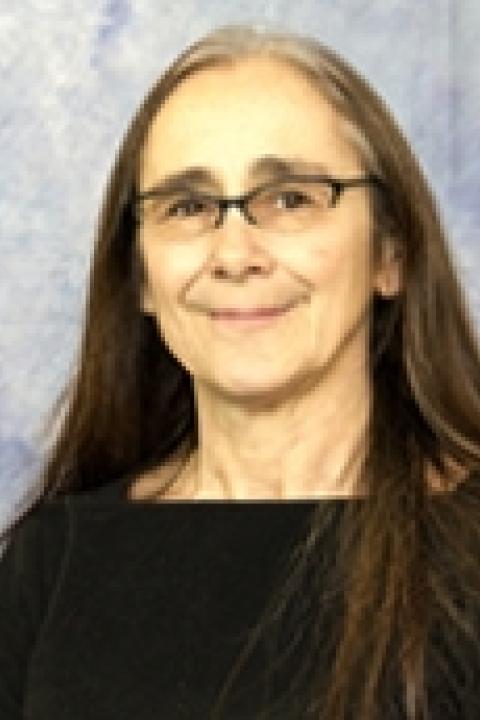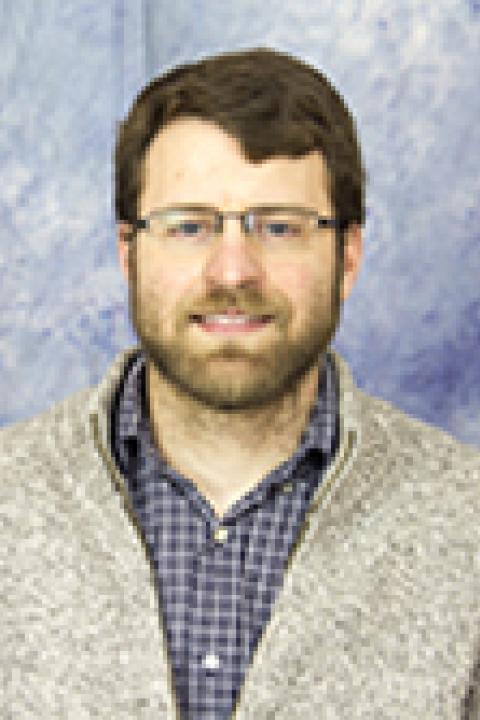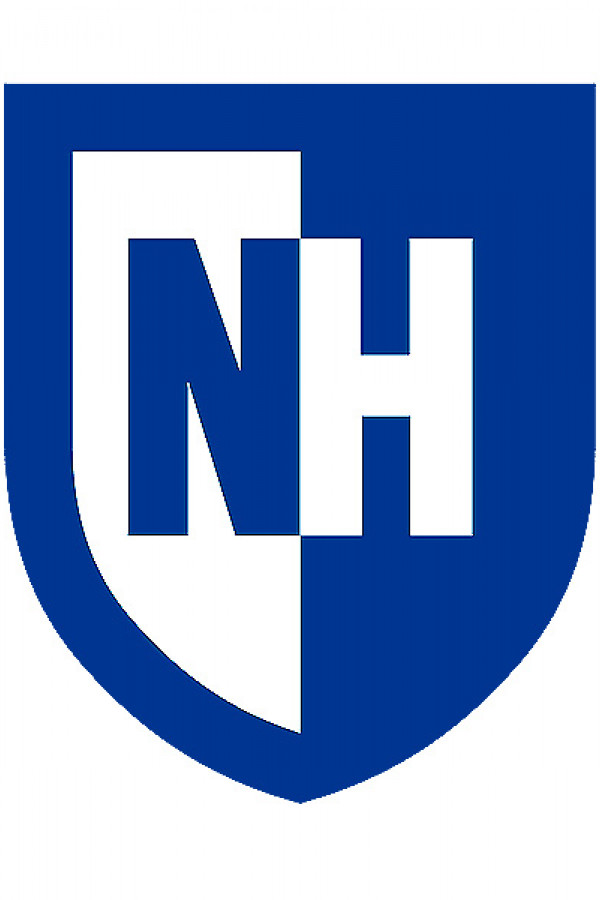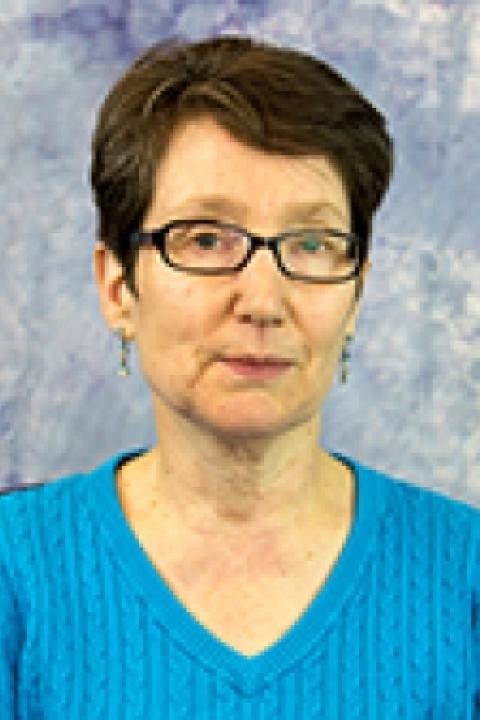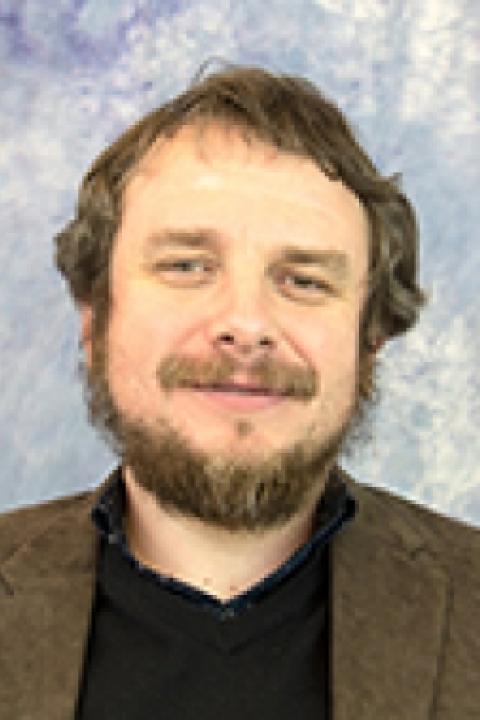The Mathematics (B.S.) major at UNH offers analytical exploration and diverse career pathways, including teaching, data analysis, finance, and software development, With a robust curriculum, students can cultivate essential problem-solving skills in today's data-driven world. UNH boasts a diverse faculty in pure mathematics, applied mathematics, statistics, and mathematics education, providing exposure to a wide spectrum of knowledge. Enjoy intimate, advanced classes fostering connections with award-winning professors that also prepare students for graduate study in mathematics as well as other programs that require strong mathematics backgrounds.
What is a Bachelor of Science in mathematics?
This degree program gives students a broad foundation in the traditional, central fields of pure mathematics, such as algebra, analysis and geometry. Core program requirements are complemented by an enticing selection of mathematics electives that let students tailor their programs toward graduate study in mathematics or science or a career in business or industry.
Why study mathematics at UNH?
You’ll work with a diverse faculty of accomplished mathematicians in a department where pure mathematics, applied mathematics, mathematics education and statistics are integrated, giving you exposure to many different facets of knowledge. Our professors have won prestigious honors, including a Grammy Award and a MacArthur “genius” grant. Upper-level mathematics classes tend to be small, so you’ll enjoy close connections to professors as they delve into the intricacies of advanced ideas. This department has produced many winners of the prestigious Department of Defense SMART Scholarship.
Potential careers
- Computational scientist
- Financial services/actuary
- Mathematician/statistician (government/research/academia)
- Programmer
- Quantitative specialist in business or industry
- Software developer
- Teacher/educator/curriculum supervisor
Curriculum & Requirements
This program offers the strongest concentration in mathematics, requiring courses that are intended to prepare the student for graduate work in mathematics. Through a judicious choice of electives, students may design stronger pre-graduate programs, a program in applied mathematics, or slant the program toward a career in business or industry.
Sample Degree Plan
This sample degree plan serves as a general guide; students collaborate with their academic advisor to develop a personalized degree plan to meet their academic goals and program requirements.
| First Year | ||
|---|---|---|
| Fall | Credits | |
| MATH 425 | Calculus I | 4 |
| Discovery Course | 4 | |
| Discovery Course | 4 | |
| Inquiry Course | 4 | |
| MATH 400 | Freshman Seminar | 1 |
| Credits | 17 | |
| Spring | ||
| MATH 426 | Calculus II | 4 |
| MATH 445 or CS 410P or CS 410C | Mathematics and Applications with MATLAB or Introduction to Scientific Programming/Python or Introduction to Scientific Programming/C | 4 |
| ENGL 401 | First-Year Writing | 4 |
| Discovery Course | 4 | |
| Credits | 16 | |
| Second Year | ||
| Fall | ||
| MATH 528 | Multidimensional Calculus | 4 |
| MATH 539 | Introduction to Statistical Analysis | 4 |
| PHYS 407 | General Physics I | 4 |
| Discovery Course | 4 | |
| Credits | 16 | |
| Spring | ||
| MATH 527 | Differential Equations with Linear Algebra | 4 |
| MATH 531 | Mathematical Proof | 4 |
| PHYS 408 | General Physics II | 4 |
| Discovery Course | 4 | |
| Credits | 16 | |
| Third Year | ||
| Fall | ||
| MATH 545 or MATH 645 | Introduction to Linear Algebra or Linear Algebra for Applications | 4 |
| MATH 761 | Abstract Algebra | 4 |
| Discovery Course | 4 | |
| Writing Intensive Course | 4 | |
| Credits | 16 | |
| Spring | ||
| MATH 763 | Abstract Algebra II | 4 |
| MATH 767 | One-Dimensional Real Analysis | 4 |
| Writing Intensive Course | 4 | |
| MATH Elective Course | 4 | |
| Credits | 16 | |
| Fourth Year | ||
| Fall | ||
| MATH 784 | Topology | 4 |
| MATH 797 or MATH 799 | Senior Seminar or Senior Thesis | 4 |
| MATH Elective Course | 4 | |
| Elective Course | 4 | |
| Credits | 16 | |
| Spring | ||
| MATH 788 | Complex Analysis | 4 |
| MATH Elective Course | 4 | |
| Elective Course | 4 | |
| Elective Course | 4 | |
| Credits | 16 | |
| Total Credits | 129 | |
Degree Requirements
All Major, Option and Elective Requirements as indicated.
*Major GPA requirements as indicated.
Major Requirements
In all courses used to satisfy the requirements for its major programs, the Department of Mathematics and Statistics requires that a student earn a grade of C- or better and have an overall grade-point average of at least 2.00 in these courses.
| Code | Title | Credits |
|---|---|---|
| Required Courses | ||
| MATH 425 | Calculus I | 4 |
| MATH 426 | Calculus II | 4 |
| MATH 445 | Mathematics and Applications with MATLAB | 4 |
| or CS 410P | Introduction to Scientific Programming/Python | |
| or CS 410C | Introduction to Scientific Programming/C | |
| MATH 527 | Differential Equations with Linear Algebra 1 | 4 |
| MATH 528 | Multidimensional Calculus 1 | 4 |
| MATH 531 | Mathematical Proof | 4 |
| MATH 539 | Introduction to Statistical Analysis | 4 |
| MATH 545 | Introduction to Linear Algebra 1 | 4 |
| or MATH 645 | Linear Algebra for Applications | |
| MATH 761 | Abstract Algebra | 4 |
| MATH 763 | Abstract Algebra II | 4 |
| MATH 767 | One-Dimensional Real Analysis | 4 |
| MATH 784 | Topology | 4 |
| MATH 788 | Complex Analysis | 4 |
| PHYS 407 | General Physics I | 4 |
| PHYS 408 | General Physics II | 4 |
| Electives | ||
| One MATH elective course (selected in consultation with the academic advisor) | 4 | |
| Select two additional courses from the following: | 8 | |
MATH 760 | Geometry | |
MATH 765 | Introduction to Commutative Algebra and Algebraic Geometry | |
MATH 768 | Real Analysis II | |
MATH 769 | Introduction to Differential Geometry | |
MATH 770 | Foundations of Number Theory | |
MATH 772 | Combinatorics | |
| Capstone | ||
| Select one of the following: | 4 | |
MATH 797 | Senior Seminar | |
MATH 799 | Senior Thesis | |
| Total Credits | 76 | |
- 1
The full Linearity sequence, MATH 525 and MATH 526, may be used to replace the MATH 527, MATH 528, and MATH 545 / MATH 645 requirements.
MATH 525 may be used to replace the MATH 545 or MATH 645 requirement.
Program Learning Outcomes
- Students can explain core concepts from a range of different branches of mathematics, including analysis, algebra, calculus and statistics.
- Students can correctly interpret mathematical definitions and construct simple proofs which use definitions and logical arguments to establish properties of mathematical objects.
- Students are aware that mathematical objects may have multiple representations and are able to select representations which clarify problems and simplify calculations.
- Students can recognize valid and invalid mathematical arguments.
Explore Program Details
Those interested in the Mathematics (B.S.) major may also be interested in the following advanced degrees. Students in the program also have the opportunity to participate in the UNH accelerated master’s program.



